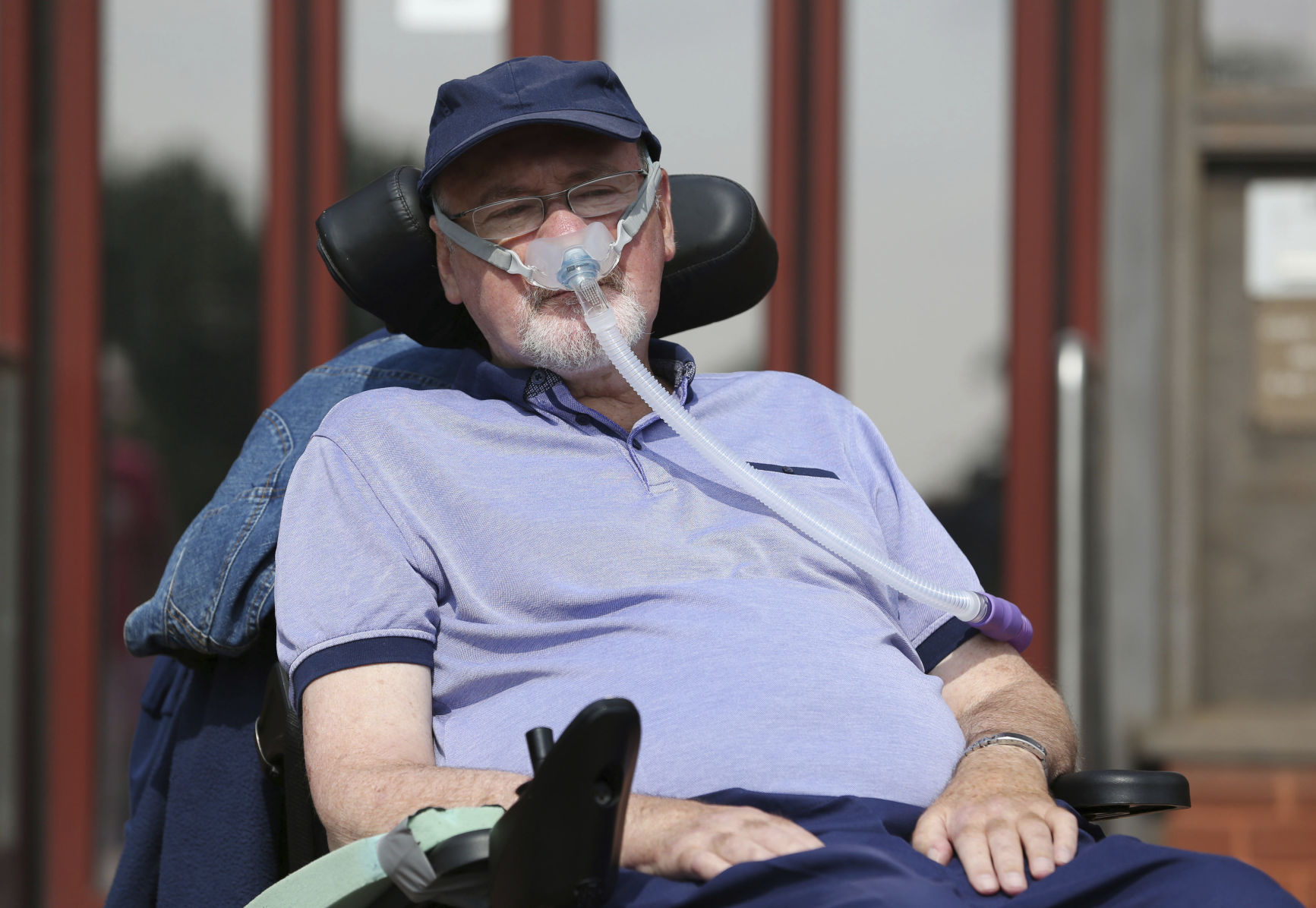LONDON (AP) — Britain’s High Court has rejected a terminally ill man’s request to be killed with medical help. In a ruling on Thursday, three judges turned down Noel Conway’s request for assisted suicide. Conway, 67, has motor neurone disease
LONDON (AP) — Britain’s High Court has rejected a terminally ill man’s request to be killed with medical help.
In a ruling on Thursday, three judges turned down Noel Conway’s request for assisted suicide. Conway, 67, has motor neurone disease and has been given less than six months to live.
Conway had applied to the court in July, asking for a declaration that Britain’s outlawing of suicide is incompatible with the European Convention on Human Rights.
After the ruling, Conway said he was “deeply disappointed” and intended to appeal. He said that since he was now no longer well enough to travel abroad to obtain assisted suicide in Switzerland — the only country in Europe that legally helps foreigners end their lives — his only option now was to die by suffocation, by removing his ventilator himself.
Conway’s bid to be killed was opposed by the Secretary of State for Justice and several other groups, who all made submissions to the court. His lawyer argued that Conway was attempting to have the ban on assisted dying lifted only for a very select category of people: adults diagnosed with a fatal illness with less than six months to live.
A previous challenge to Britain’s ban on assisted dying by another man was rejected in 2014. The Supreme Court said Parliament should debate the issue before any legal decision.
Sarah Wootton, chief executive of Dignity in Dying, said that the law being proposed in Conway’s case resembles that adopted by several American states, including Oregon, where assisted dying is legal.
“Dying people in this country are being let down while the rest of the world moves on,” she said in a statement.
The Christian Legal Centre, however, said in a statement that such cases should not be used to pressure U.K. politicians to change the law.
“The current law tempers justice with mercy and provides essential safeguards against abuse,” the group said. “We mustn’t allow those safeguards to be undermined.”



